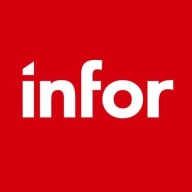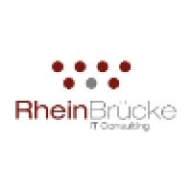

Infor LX and RheinBrücke Epicor ERP are competing ERP solutions tailored for different business requirements. RheinBrücke Epicor ERP seems to have the upper hand due to its broader feature set and flexible architecture, catering to companies seeking adaptability.
Features: Infor LX offers strong industry-specific capabilities, particularly in manufacturing and distribution, with robust supply chain management and production scheduling. RheinBrücke Epicor ERP provides a comprehensive suite of integrated applications, featuring advanced business intelligence tools and mobile access, making it suitable for diverse business environments.
Ease of Deployment and Customer Service: RheinBrücke Epicor ERP provides flexible cloud or on-premise deployment options with extensive integration support and is known for quick customer service response times. Infor LX focuses on traditional on-premise deployment, with customer support tailored to specific industry applications, offering limited cloud options.
Pricing and ROI: Infor LX involves significant initial costs typical of traditional ERP solutions, which can be justified in industry-specific sectors. RheinBrücke Epicor ERP offers a modular pricing structure, potentially more cost-effective initially, with greater potential for long-term ROI through scalability and customization.

RheinBrücke Epicor ERP is an efficient enterprise resource planning solution tailored for dynamic business needs, offering extensive features for improved operational efficiency.
RheinBrücke Epicor ERP provides businesses with a robust framework to streamline processes, enhance productivity, and effectively manage resources. Its adaptable architecture can be customized to fit specific industry demands, ensuring seamless integration and scalability. This facilitates real-time data access for better decision-making and operational insights crucial for maintaining competitiveness in today's market landscape.
What are the most important features of RheinBrücke Epicor ERP?RheinBrücke Epicor ERP is implemented across industries such as manufacturing, distribution, and services, each uniquely benefiting from its tailored features and adaptability. In manufacturing, it manages complex supply chains and production schedules. Distributors use it for inventory management and logistics optimization, while service industries leverage its resource planning tools to enhance project management and customer satisfaction.
We monitor all ERP reviews to prevent fraudulent reviews and keep review quality high. We do not post reviews by company employees or direct competitors. We validate each review for authenticity via cross-reference with LinkedIn, and personal follow-up with the reviewer when necessary.